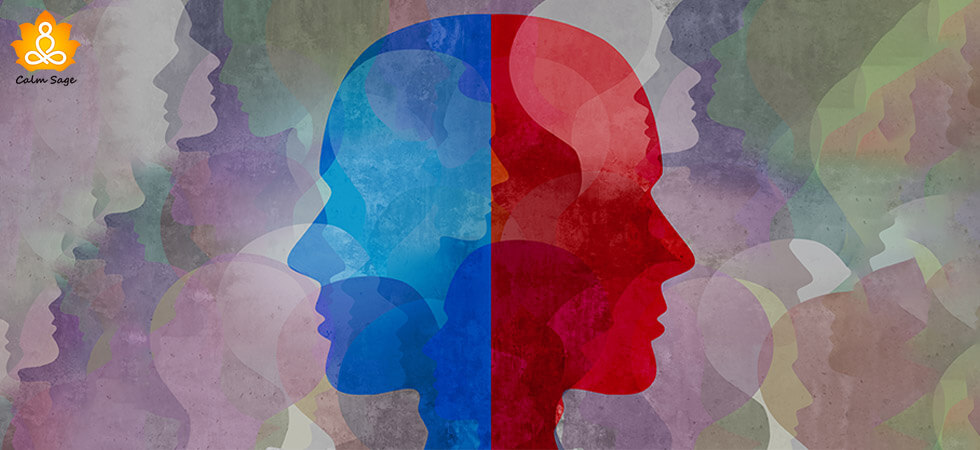Your Guide to Schizotypal Personality Disorder

Schizotypal personality disorder (STPD) is also referred to as “eccentric personality disorders”.In a simple language, this disorder refers to those people who are peculiar towards others or have odd characteristics. Additionally, these people have unusual behavior and thinking pattern which makes them odd than others. Such rigid personality traits cause them issues while interfering in various areas of life like college life, work, and social circle. They also have poor coping skills which trouble them in forming healthy relationships with people and their friends.
Also Read:- Types of Psychotherapy For Anxiety Disorders: Explained
They are different from people but have some similar traits of anxiety disorder. Like, they know what the problem is but they still are not able to control it. Or might be they are not aware of their issue and they believe that they do not have anything to control. Both situations are common for people with Schizotypal Personality Disorder.
Disclaimer: As BetterHelp Affiliate, We may receive compensation from BetterHelp or other sources if you purchase products or services through the links provided on this page.
Symptoms of Schizotypal Personality Disorder
Apart from having odd behavior, they have different thoughts, speech patterns, and odd perceptions towards everyone they meet. This is why they are referred to as eccentric or strange personality people. Other than these symptoms, below mentioned are some of the common signs of schizotypal personality disorder:
- Being paranoid and suspicious
- Speak, act, or dress in unusual ways
- Have few friends
- Being anxious or uncomfortable during social meets and always being distrustful towards others.
- Uncomfortable in getting intimate with the partner
- Have a habit of misinterpreting reality or always have distorted perceptions.
- Have magical thinking and odd beliefs that are completely superstitious.
- Have a habit of daydreaming and fantasizing about everything.
- Awkward or stiff traits towards people who try to talk.
- Aloof, cold, or distant emotional trait.
- Are not so emotional, they are always cold about every situation
Also Read:- 10 Effective Ways to Deal With Paranoid Personality Disorder
Causes of Schizotypal Personality Disorder
Genes of people play a significant role in the cause of Schizotypal Personality disorder. It is mostly related to schizophrenia and starts triggering from early adulthood phases. A person’s relationships, temperaments, reactions to events, coping strategies, and behavior show how personality disorders developed into them during adolescence or childhood.
Below-mentioned are some of the common causes of STPD:
- Family history with personality disorders
- Diagnosed with conduct disorder.
- Chaotic, abusive, or unstable from childhood.
- Variations in brain chemistry and structure.
Differences Between Schizoid and Schizotypal
Talking about comfort level, people with Schizotypal Personality Disorder generally do not care about improving their connections or social life. They find their situation uncomfortable because they always feel depressed and anxious while maintaining a social relationship. Therefore, they are less probable to ask for professional support.
Coming on to behavioral aspects, people with STPDs are odd and eccentric. They do not have an interest in communicating with others.
Schizoid: People experiencing SzPD do not experience cognitive or perceptual disturbances like being paranoid and hallucinations.
Schizotypal Personality Disorder: People experiencing STPD highly experience mental disturbances and perceptual.
Also Read:- A Guide to Split Personality Disorder : Symptoms & Causes
Treatment Options for Schizotypal Personality Disorder
Psychotherapy is the most common treatment used for mental illnesses. Talking about symptoms of Schizotypal Personality Disorder, recovery can only be beneficial when the person tries to make a good relationship with his\her therapist. So that the therapist can help set goals accordingly and you both can work together.
The basic aim of psychotherapy is to help people changing odd behaviors, relationship styles, habits of thinking and behavior, and coping patterns. Psychotherapies for Schizotypal Personality Disorder are:
Also Read:- EUPD – Emotionally Unstable Personality Disorder and Its Symptoms
1. Supportive Therapy
Supportive Therapy teaches you handling negative thoughts and emotions, trusting people and building relationships.
2. Cognitive Behavioral Therapy
CBT teaches people how to manage their anxiety and improve their coping skills.
3. Family Therapy
Sometimes, therapists include family members as well for improving behavioral skills.
4. Supportive-expressive Therapy
This therapy supports people with getting rid of negative biases they built in the years in the perspective of relationships.
I hope this blog answers all your queries related to Schizotypal Personality Disorder. Comment down and let us know if you have any other queries related to STPD. For more such content, follow Calm Sage on all social media platforms.
Thanks for reading!






















Schizotypal Personality Disorder is nicely explained and presented.